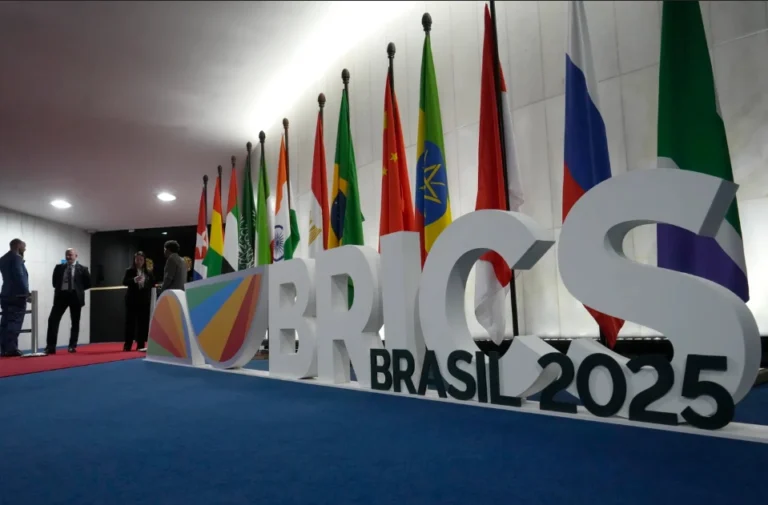BRICS Summit Opens in Brazil as Global South Leaders Arrive
With heads of state and top officials arriving in Rio de Janeiro, the 17th BRICS Summit opens under Brazil’s rotating presidency, aiming to deepen South-South cooperation and advance a fairer, multipolar world order.

Leaders of the Global South, including Cuba, gather in Brazil for a pivotal BRICS summit. Photo: @EduardoLopezL65
July 6, 2025 Hour: 7:32 am
Presidents and senior representatives from BRICS nations and newly invited partners are gathering in Rio de Janeiro for the 17th Leaders’ Summit, held on July 6–7. Under Brazil’s leadership, the gathering seeks to strengthen ties across the Global South and push for inclusive development, climate justice, and shared sovereignty in global governance.
RELATED:
BRICS Bank Governors Ratify the Accession of Colombia and Uzbekistan
Hours ahead of the official opening, delegations from BRICS member states and new participating countries are already in Brazil, marking the start of what could become a turning point in the bloc’s evolution from an economic forum into a strategic force.
South African President Cyril Ramaphosa is among the early arrivals, attending at the invitation of Brazilian President Luiz Inácio Lula da Silva. Indian Prime Minister Narendra Modi landed Saturday night and confirmed via social media that he would join both the summit and a state visit to Brasília. “Landed in Rio de Janeiro, Brazil, to take part in the BRICS Summit,” he posted on X.
Russia is represented by Foreign Minister Sergey Lavrov, who is scheduled to hold several bilateral meetings during his stay in Rio. President Vladimir Putin will participate remotely in the plenary session. Chinese Premier Li Qiang also arrived and underscored China’s interest in expanding cooperation with Brazil in key areas such as digital economy, green development, technological innovation, and aerospace.
Cuban President Miguel Díaz-Canel Bermúdez is also in Brazil to take part in the summit. His presence reinforces Cuba’s ongoing diplomatic engagement with the BRICS platform and its commitment to a multipolar international order rooted in sovereignty and solidarity.
From Iran, Foreign Minister Abbas Araqchi leads his country’s delegation. Iran is among the new BRICS members participating in this year’s summit. “We have arrived in Rio de Janeiro, Brazil, to participate in the 17th BRICS Summit,” said Foreign Ministry spokesperson Esmaeil Baqaei on X.
With the recent addition of Egypt, Ethiopia, Indonesia, Iran, Saudi Arabia, and the United Arab Emirates, BRICS now represents over 45% of the global population. Its combined gross domestic product—measured in purchasing power parity—surpasses that of the G7, solidifying the bloc’s growing geopolitical and economic influence.
Under the banner “Strengthening Global South Cooperation for a More Inclusive and Sustainable Governance”, Brazil is advancing a strategic agenda during its rotating presidency.
The Lula administration has outlined six priority areas: equitable access to health and technology; increased trade using local currencies; climate justice; democratic global governance of artificial intelligence; reform of international peace and security institutions; and the institutional development of BRICS, including efforts to establish a permanent secretariat.
As demands for a more democratic and balanced international system intensify, the BRICS bloc is positioning itself as a leading platform for Global South voices. The Rio summit may represent a historic turning point—transforming BRICS from a consultative forum into a driving force for a just, inclusive, and multipolar global order.
Author: MK
Source: TeleSUR






